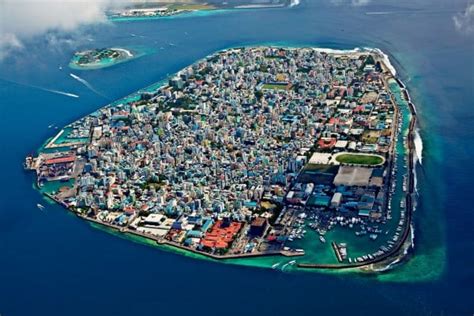Explore Maldives Casinos how tourism impacts casino revenues, customer demographics, and long-term sustainability, highlighting tourism growth as a driving force in casino development.
Understanding The Impact Of Tourism On Casino Revenues
The relationship between tourism and casino revenues in the Maldives is complex and multifaceted. As one of the top tourist destinations globally, the influx of visitors directly affects the profitability of casinos across the islands. The following aspects highlight the significant impact tourism has on the financial performance of these establishments:
- Increased Foot Traffic: Higher tourist arrivals lead to increased foot traffic in casinos, translating into more potential customers. This surge results in greater revenue generation from games, dining, and entertainment.
- Variety of Entertainment Options: Tourists often seek diverse entertainment experiences, prompting casinos to broaden their offerings. This not only caters to varied interests but also maximizes revenue streams through events and promotions.
- Spending Patterns: Tourists generally exhibit higher spending habits compared to locals. Their willingness to indulge in lavish gaming experiences, luxury accommodations, and exclusive events significantly boosts casino revenues.
- Seasonal Revenue Fluctuations: The tourism cycle affects casino revenue patterns, with peak seasons resulting in heightened earnings. Conversely, during off-peak periods, casinos may struggle with lower visitor numbers and reduced income.
- Promotional Strategies: The competitive nature of the tourism sector compels casinos to develop attractive promotional strategies, aiming to draw tourists. This often includes special gaming packages, loyalty programs, and festive events, further enhancing revenue opportunities.
In conclusion, understanding the impact of tourism on casino revenues is crucial for operators aiming to optimize their offerings and strategies. By aligning their services with tourist expectations and preferences, casinos can significantly enhance their financial performance while contributing to the overall tourism economy of the Maldives.
Tourism Growth: A Key Factor In Casino Development
The connection between tourism and casino development in the Maldives is significant and multi-faceted. As one of the most sought-after tourist destinations in the world, the influx of visitors directly impacts the growth and sustainability of casinos within the region. The tourism sector brings not only revenue but also diverse customer bases, encouraging casino operators to innovate and expand their offerings.
When The Impact of tourism growth is analyzed, one can observe several crucial trends:
- Investment Opportunities: The surge in tourist arrivals incentivizes both local and international investors to put their resources into developing casinos. This investment often translates into luxurious gaming facilities, entertainment options, and enhanced customer experiences that align with the expectations of affluent tourists.
- Diverse Gaming Options: To attract a broader demographic, casinos may diversify their gaming options. The varying preferences of international tourists push casinos to integrate new gaming technologies, themed events, and high-profile tournaments to boost visitor engagement.
- Collaboration with Hospitality Sector: The synergy between casinos and the hospitality industry enhances overall tourist experiences. Packages combining hotel stays with casino credits or experiences can increase foot traffic to gaming establishments, directly contributing to their revenue streams.
- Regulatory Adaptations: Governments may adapt regulations to capitalize on the growing tourism sector. This can mean relaxing certain restrictions, improving infrastructure, or providing incentives for casino development to create a more lucrative environment.
Overall, the robust relationship between tourism growth and casino development highlights how essential it is for stakeholders to consider The Impact of tourist trends on their business models and strategies. As the Maldives continues to attract millions of visitors yearly, casinos are poised to evolve, ensuring they remain competitive and appealing to this dynamic customer demographic.
How Tourism Influences Casino Customer Demographics
The relationship between tourism and casino customer demographics is intricate and significant. As tourism expands in the Maldives, it dramatically shapes the profiles of the individuals frequenting casinos. Different types of tourists bring varied expectations, preferences, and spending habits, which can significantly influence casino operations and marketing strategies.
Primarily, the surge in international tourism has introduced a diverse clientele to Maldives casinos. Tourists from regions with different cultural backgrounds come with unique gambling behaviors and preferences. For instance, high-rollers from Asia may prefer VIP gaming rooms and exclusive services, while casual gamblers from Europe might be more inclined towards themed slot machines or low-stakes games. This diversification necessitates casinos to tailor their offerings to cultivate a more personalized experience for each demographic group.
Additionally, the influx of tourists can lead to fluctuations in peak visitation periods. Certain times of the year attract specific demographics—for example, families might visit during holidays, while young adults might prefer the nightlife during summer months. Casinos must adapt to these seasonal shifts, ensuring that their promotions and customer engagement strategies resonate with the current demographic makeup.
Moreover, the impact of tourism on casino customer demographics extends to the social aspect as well. Tourists tend to visit casinos not only for gambling but also for entertainment and social interaction. This means that casinos have to create a welcoming atmosphere that appeals to various age groups and interests.
In conclusion, understanding how tourism influences casino customer demographics is essential for any casino business in the Maldives. By analyzing visitor trends and preferences, casinos can enhance their services and ultimately improve their revenue streams.
Evaluating The Long-Term Impact Of Tourism On Casino Sustainability
The sustainability of casinos in the Maldives is intricately linked to the ongoing influx of tourism. As the tourism industry expands, casinos are faced with both opportunities and challenges that can affect their long-term viability. One significant aspect to consider is the reliance on a fluctuating visitor demographic, primarily international tourists. The concentration on this audience can lead to unpredictable revenue streams, particularly during global crises that impact travel.
Moreover, the relationship between tourism and casino sustainability is influenced by environmental factors. Increased foot traffic can strain local resources and ecosystems, necessitating casinos to adopt sustainable practices. Implementing eco-friendly measures not only appeals to the socially-conscious traveler but can also mitigate potential negative impacts on the surrounding environment.
Another critical point of evaluation is the diversification of offerings at casinos. To maintain appeal beyond the tourist season, casinos can develop programs that cater to local residents and promote off-season visitation. This broader strategy can enhance casino sustainability by stabilizing revenue streams throughout the year.
In conclusion, the impact of tourism on casino sustainability in the Maldives depends on a multi-faceted approach that includes operational strategies, environmental stewardship, and an understanding of demographic trends. Casinos that adapt and innovate in response to these elements will likely thrive, contributing positively to the economic landscape of the region. Implementing long-term planning and sustainability initiatives will ensure that the casinos remain competitive within a changing tourism sector.




 Looking towards the future, staying informed about emerging trends such as the integration of virtual reality in gaming, the inclusion of cryptocurrencies for transactions, or the augmentation of adaptive and personalized gaming experiences can help players choose a casino that stays abreast of technological advancements and market shifts. This foresight ensures that the chosen Maldives casino site will continue to provide an engaging and up-to-date gambling environment for all its users.
Looking towards the future, staying informed about emerging trends such as the integration of virtual reality in gaming, the inclusion of cryptocurrencies for transactions, or the augmentation of adaptive and personalized gaming experiences can help players choose a casino that stays abreast of technological advancements and market shifts. This foresight ensures that the chosen Maldives casino site will continue to provide an engaging and up-to-date gambling environment for all its users.
 Beyond slots and live dealer games, Maldives Betting sites sites also offer an assortment of table games, including Blackjack, Roulette, Baccarat, and Poker among others. These games come in several variations, offering players the chance to test their strategies and skills in different formats and against different rules. This not only keeps the gaming experience fresh but also increases the likelihood of winnings by broadening the player's expertise in various game types.
To ensure that they remain competitive and appealing, Maldives slot sites continually update their game libraries with the latest releases and trend-specific games influenced by popular culture and player feedback. This proactive approach in curating their game offerings keeps the excitement alive and maintains player interest at a peak, paving the way for increased visitor retention and satisfaction.
Beyond slots and live dealer games, Maldives Betting sites sites also offer an assortment of table games, including Blackjack, Roulette, Baccarat, and Poker among others. These games come in several variations, offering players the chance to test their strategies and skills in different formats and against different rules. This not only keeps the gaming experience fresh but also increases the likelihood of winnings by broadening the player's expertise in various game types.
To ensure that they remain competitive and appealing, Maldives slot sites continually update their game libraries with the latest releases and trend-specific games influenced by popular culture and player feedback. This proactive approach in curating their game offerings keeps the excitement alive and maintains player interest at a peak, paving the way for increased visitor retention and satisfaction.
